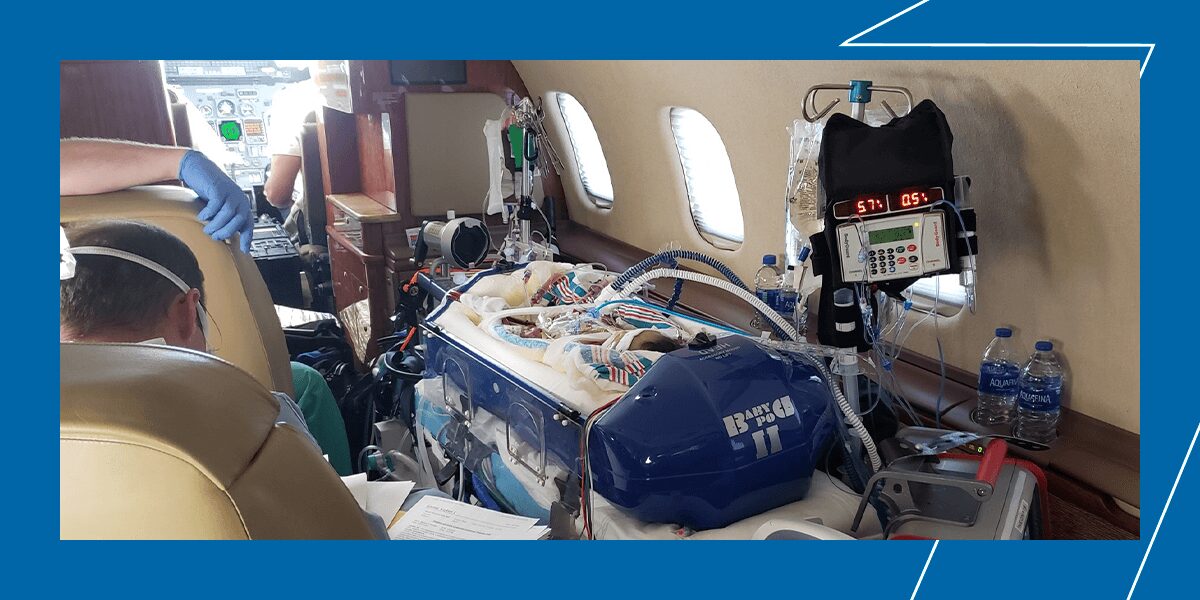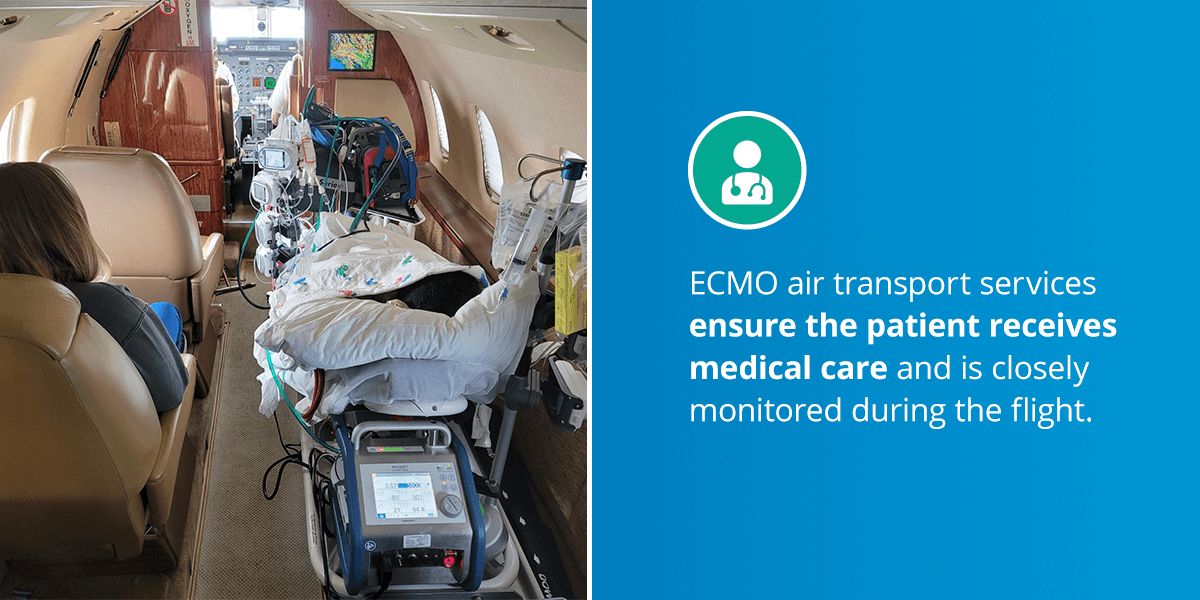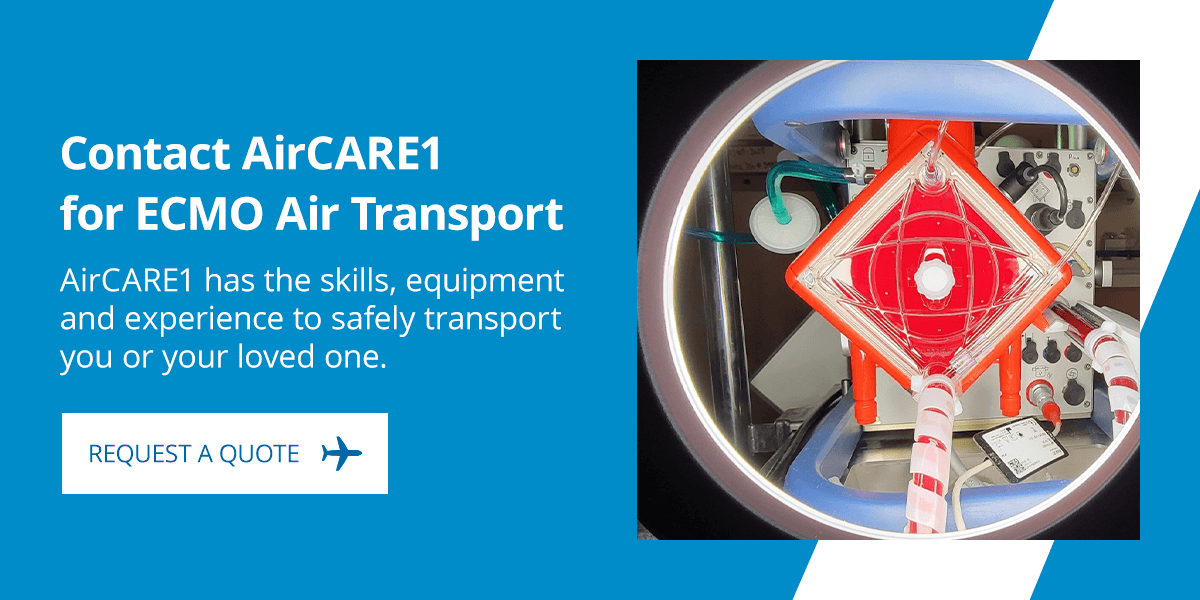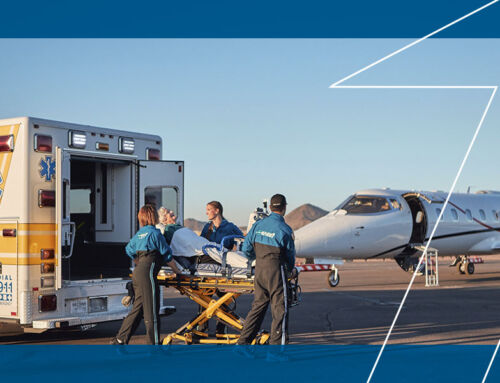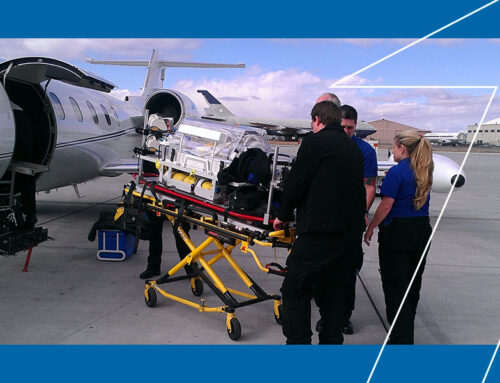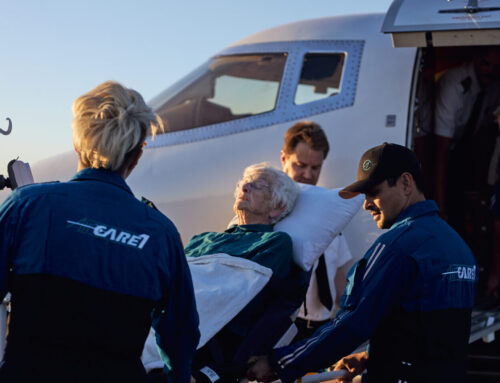Extracorporeal Membrane Transports Air Transport: The Importance of Hiring Professionals
Extracorporeal membrane oxygenation (ECMO) is a life-saving intervention for patients with heart and lung complications. When these patients need to be transported to a medical facility in a different state or country for specialized care, ECMO air transport services become essential. These air transport services can administer ECMO support during the flight, ensuring patients can reach their destination safely.
Understanding Extracorporeal Membrane Oxygenation
Extracorporeal membrane oxygen is a critical care measure implemented when a patient’s heart and lungs need help. ECMO involves pumping blood externally with a heart-lung machine. It pumps blood from the heart’s right upper chamber into an oxygenator reservoir inside the machine.
The machine can remove carbon dioxide from the blood and then pump oxygen-rich blood back into the body. The blood flows from the heart to the machine and then back to the body.
When ECMO is used, the doctor inserts a cannula tube into a large vein on the leg, neck or chest to pump blood to the machine. A second cannula tube is inserted into an artery to return blood to the body. The doctor may administer medications to induce sedation.
ECMO is a life-saving intervention that assists the heart and lungs by mimicking their functions, allowing these organs to rest and recover. Doctors typically recommend ECMO for patients with severe trauma or infection and various heart and lung conditions, including:
- Heart attack and cardiac shock
- Heart muscle disease
- Sepsis
- Hypothermia and pneumonia
- Post-transplant complications
- Acute respiratory disease
- Pulmonary embolism
- Influenza and coronavirus disease
- Hantavirus pulmonary syndrome
- Respiratory failure
The Role of ECMO Air Transport
When patients with severe heart and lung conditions need to move to a different facility for specialized care, a ground ambulance is suitable for shorter distances. While a medical helicopter can travel further distances in a shorter time, a long-range fixed-wing aircraft can reach different states and countries.
ECMO air transport services ensure the patient receives medical care and is closely monitored during the flight. The medical practitioners on board have access to medical equipment and supplies and can administer and monitor ECMO interventions.
Complexities and Challenges of ECMO Air Transport
While ECMO air transport can save lives, the transportation process is not without complex challenges. Medical staff need to navigate turbulence, temperature changes, altitude changes and cabin pressure changes while providing the patient with essential medical care.
These environmental changes can impact patient stability. Fortunately, expert medical practitioners can adjust the ECMO setting to overcome altitude and cabin pressure changes. Shock-absorbing materials are used to limit the effects of turbulence on patient stability.
At the same time, in-flight medical practitioners and the medical team on the ground need to navigate communication for seamless coordination. Medical staff on board need to monitor and communicate the patient’s condition, while medical staff on the ground need to be prepared to receive the patient. In some cases, the ground team may need to prepare additional treatments when receiving the patient due to health changes that may occur during air transport.
The pilot must also be aware of the patient’s condition. Specific health changes may prompt an emergency landing at the nearest medical facility. In other cases, the aircraft may need to reroute due to bad weather or mechanical issues. For these reasons, all teams involved need to collaborate and communicate effectively to support the patient on board.
The Importance of Hiring ECMO Air Transport Professionals
While ECMO air transport is a life-saving rescue measure, it’s important to choose experienced medical staff when relying on these services. Studies show that skilled staff are key to ensuring low mortality rates. Here are some of the primary reasons trained professionals are essential:
Specialized Medical Expertise
Administering and monitoring ECMO therapy requires specific skills and training. Medical air transport services are required to hold specific accreditation from regulatory entities. CAMTS is one of the authoritative entities that control the standards and criteria for these services to ensure optimal patient care and safety.
When choosing professional medical air transport services, patients can access ICU-level trained nurses, critical care paramedics, respiratory specialists and trained physicians. These skilled medical professionals can deliver specialized care during air transport.
Equipment and Technology
Various medical equipment is essential for ECMO air transport. Between monitoring vitals, oxygen support and fluid administration, these services need an array of quality medical equipment. Moreover, transport stretchers and loading systems are required to move patients from ground facilities into the aircraft.
Safety and Contingency Planning
Medical teams on board need to be trained in safety and contingency planning. Transporting patients who require life-saving therapies can come with complications. If the patient’s health status changes during air transport, teams must have a contingency plan that considers all possible changes and outcomes to act quickly. Contingency planning is a form of risk management that can ultimately ensure patient safety during transport.
Collaboration With Receiving Medical Facilities
Professional ECMO air transport services are skilled in collaborating with receiving medical facilities. Communication and collaboration begin long before the aircraft departs. The receiving hospital must anticipate the patient to equip their ground medical team effectively. The ground medical team must be aware of the patient’s health condition and status to prepare medical equipment and treatments. Collaboration is also crucial to prepare the ground team regarding health status changes that may alter receiving methods and treatments.
Considerations When Hiring ECMO Air Transport Professionals
When choosing ECMO air transport services, there are several essential considerations that will help you find the right service. Instead of prioritizing costs, look for accreditations and certifications. These elements will determine whether the service is skilled and trained.
After confirming accreditations, look for specialized experience in ECMO transport. Even when medical air transport services offer this therapy, they may not have specialized expertise. In addition, confirm the service’s availability and medical equipment.
Lastly, professional ECMO air transport services should have established partnerships with various medical facilities. These details should be easy to find on the service’s website or by contacting the service.
Trust AirCARE1 For Compassionate ECMO Air Transport
AirCARE1 offers air ambulance services. We provide long-range patient medical air transport and commercial medical escort services. Our medical experts hold an accreditation with CAMTS and prioritize continued education to ensure patients receive expert medical care while in our care.
Our medical crew consists of highly trained medical personnel with more than five years of experience in their relevant fields. We have over 15 years of experience offering the highest level of care as a medical air transport service. We strive to exceed industry standards by employing medical experts with critical care backgrounds.
Contact AirCARE1 for ECMO Air Transport
Whether you need ECMO air transport services or commercial medical escort services, AirCARE1 has the skills, equipment and experience to safely transport you or your loved one. Our medical crew is trained in critical care and administering life-saving therapies and is skilled in implementing contingency plans to support patient safety.
Contact us to request a quote today.
Links:
- https://www.ncbi.nlm.nih.gov/books/NBK576426/
- https://www.hopkinsmedicine.org/health/treatment-tests-and-therapies/extracorporeal-membrane-oxygenation
- https://www.ncbi.nlm.nih.gov/pmc/articles/PMC7920709/
- https://airambulanceone.com/air-ambulance-accreditations/
- https://airambulanceone.com/medical-crew-experience/
- https://airambulanceone.com/request-a-quote

